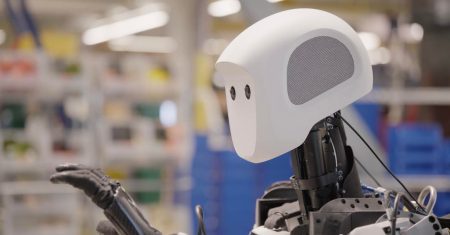Who is truly leading the charge in the transition to net-zero? Is it small businesses and startups or large corporations? Where is the pressure to change to sustainable business practices coming from? And where has progress on ESG been made versus the areas where businesses slacking in their environmental and social commitments?
Business and sustainability leaders debated the above at Investor Ladder’s Leeds Climb23 conference in a roundtable on climate tech entrepreneurship and impact investing.
Here are 3 key takeaways
Small businesses are often more agile and can adapt quickly to changing market demands and sustainability trends. Many small businesses are also embracing sustainable practices, such as energy efficiency, waste reduction, and responsible sourcing. They can contribute to the transition to net-zero by implementing sustainable business models, developing innovative solutions tailored to local needs, and driving change within their communities.
Richard Hagan, Managing Director at Crystal Doors argued that change will come from small companies: “it won’t be a big company that continues to lead on climate. What we’re seeing now is quantum leaps in technology and quantum leaps in what people want to do.
“Incremental change is no longer acceptable. And that’s where small businesses come into the picture, it’s one small seed that’s going to grow and then become contracted. And it’s up to the investors to find the right ones and back the right ones.”
Evan Mainhold, Managing Partner, Hyperlight Ventures argued that large corporations are feeling the heat of regulatory and consumer pressure to transition to net-zero, and this is a core driver of industry-scale change. The role startups and SMEs are playing is to create the net-zero innovation and sell this to large corporates:
“I’m in the process of raising my first venture capital fund. We invest in ventures that create a positive ESG impact. What I see happening is that there’s a lot of regulatory pressure on large organisations to prove their ESG governance – that’s not happened at the level of small businesses. And I don’t actually think that’s the role of entrepreneurs. I think the role of entrepreneurs is to create new technologies, which ultimately change where we’re going, and sell those to big businesses.
“ESG is being driven by regulation but it’s also being driven by consumer preference. The data shows that, in fact, consumers will pay more for sustainable products, they won’t pay a premium, but they will pay 5% more. It’s also being driven by this tidal wave of money looking to go into ESG investment. When talking to investors, they’re way more interested if it’s about impact, not just making money. That’s the investment thesis of our fund, we look to invest in organisations that serve that significant demand that large organisations have for products and services for certain with social and environmental impact.”
Multinational companies have significant resources, influence, and global reach. Many of them are coming under regulatory and consumer pressure and have made commitments to reduce their carbon footprint and transition to net-zero emissions. These corporations often have the financial capacity to invest in renewable energy, implement sustainable practices across their supply chains, and develop innovative technologies to address climate challenges. Their actions can have a substantial impact due to their scale and ability to influence other companies.
For SMEs and startups, the economic environment and extreme market volatilities of the last few years have been a tough burden to bear that could negatively impact the ability of SMEs to drive the green revolution.
Kate Hutchinson, Founder at Yorkshire Sustainability Week, said: “what we’re actually seeing is that there’s a massive divide between small and big businesses. There are great conversations happening in both areas, but the conversations aren’t happening together, and that’s where the problems are. I’m speaking on behalf of small business being a small business owner: we’re 5 years old this year and it’s been incredibly rough. It’s been really difficult to get off the ground.
“We need to recognise the importance of supporting that startup and scaleup community with investment, with time, with skills. It’s been real hell for the last 5 years, so climate tech startups that have failed – it’s not necessarily because their business models were incorrect, it’s because the circumstances were absolutely shocking.”
Alex Jones, Business Development Director at RapidDCS, added that within the construction sector, in SMEs, “what we’re starting to see is in a competitive market, which has been just ‘who is the cheapest?’ it’s moving to ‘who uses less carbon?’
“We have a carbon estimating software that issues pricing on your carbon. 30-40% of carbon emissions comes from construction of the built environment, operations and maintenance, there’s a big obligation on that industry to start being more carbon conscious. 85% of your carbon footprint lies downstream from the supply chain.
“If you follow the money, banks are lending huge sums to investors who have to demonstrate they’re funding green projects, which means that if you want to build your next hospital, you have to prove that this has gone to a contractor who has done a green job, not just a cheap job. So they’re now looking at supply chains and who in my supply chain is the greenist? And it’s not just carbon, but water, and social value.”
The pressure to change to sustainable business practices is stemming from regulation as well as consumers, with large multinationals under fire to demonstrate their ESG credentials: consumers are increasingly demanding products and services that align with their values. This consumer demand drives businesses, both small and large, to adopt more sustainable practices to remain competitive and meet customer expectations.
Governments and regulatory bodies are implementing policies and regulations to incentivize and enforce sustainable practices. These policies can include carbon pricing, renewable energy incentives, emissions reduction targets, and reporting requirements.
Both small businesses and large corporations are important players in the transition to net-zero. Large corporations have the scale and resources to drive change at a global level, while small businesses can contribute through agility and community-level impact. The pressure to change to sustainable business practices comes from consumers, investors, governments, and societal awareness of climate change. Collectively, these factors are shaping the transition to a more sustainable and net-zero future.
Read the full article here










